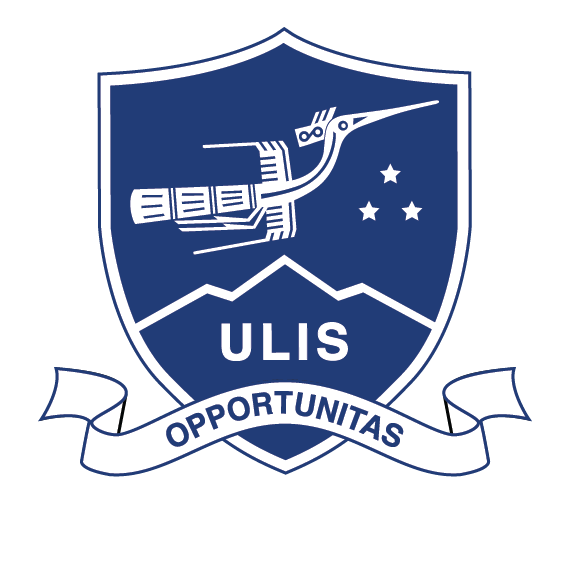Thông tin về hội thảo quốc tế IGRS 2021
Hội thảo quốc tế dành cho Học viên cao học và Nghiên cứu sinh năm 2021.
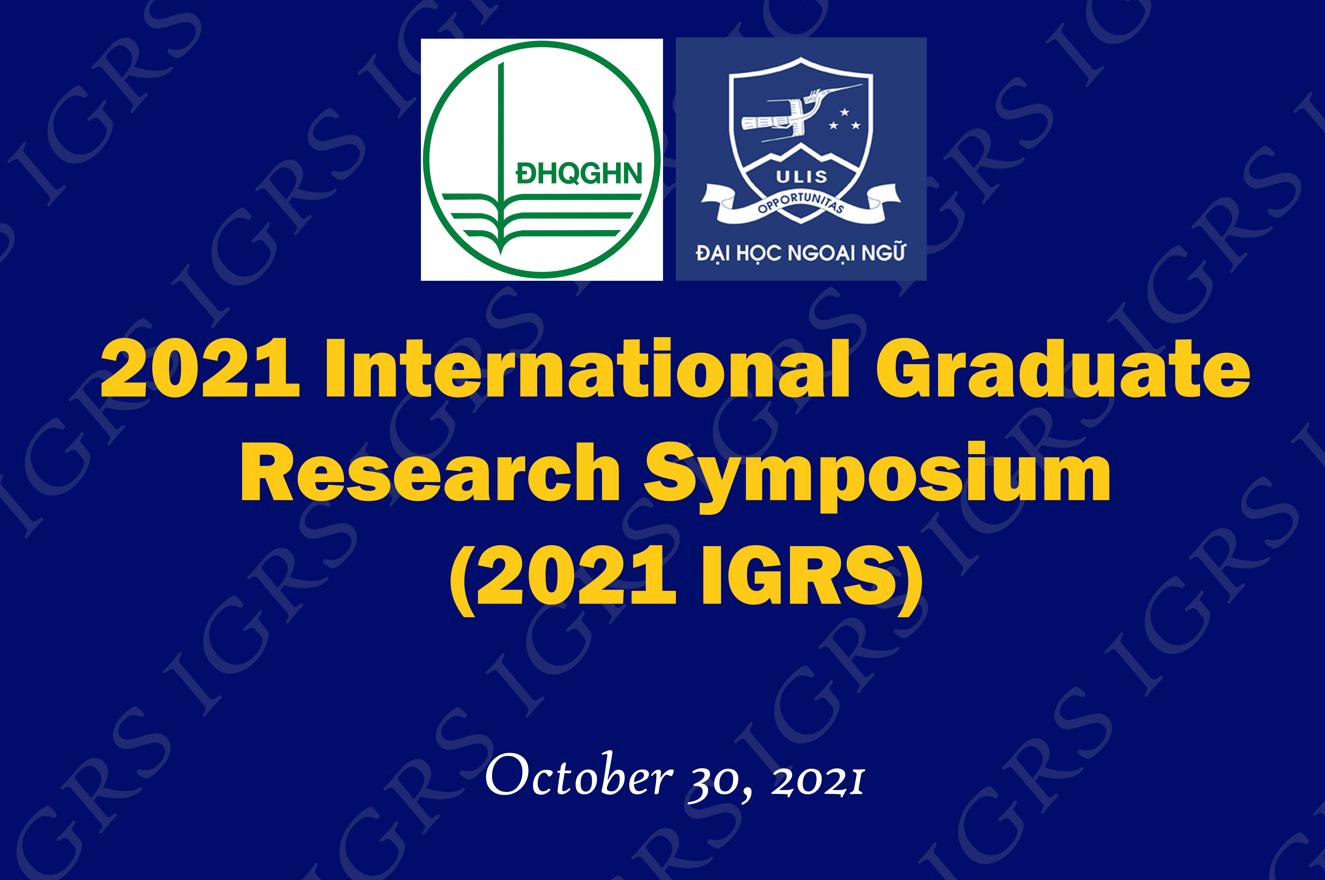
Chương trình hội thảo:
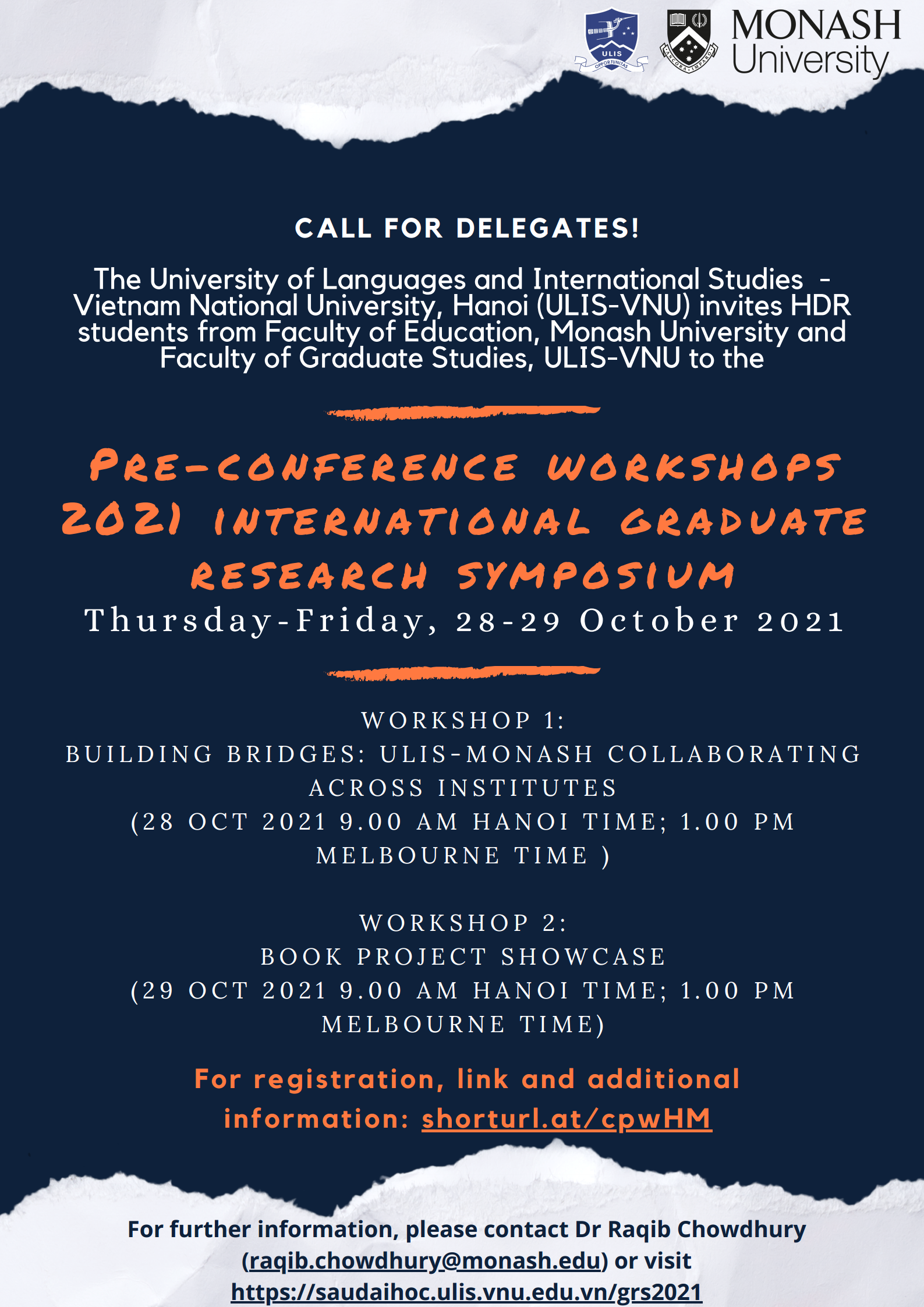
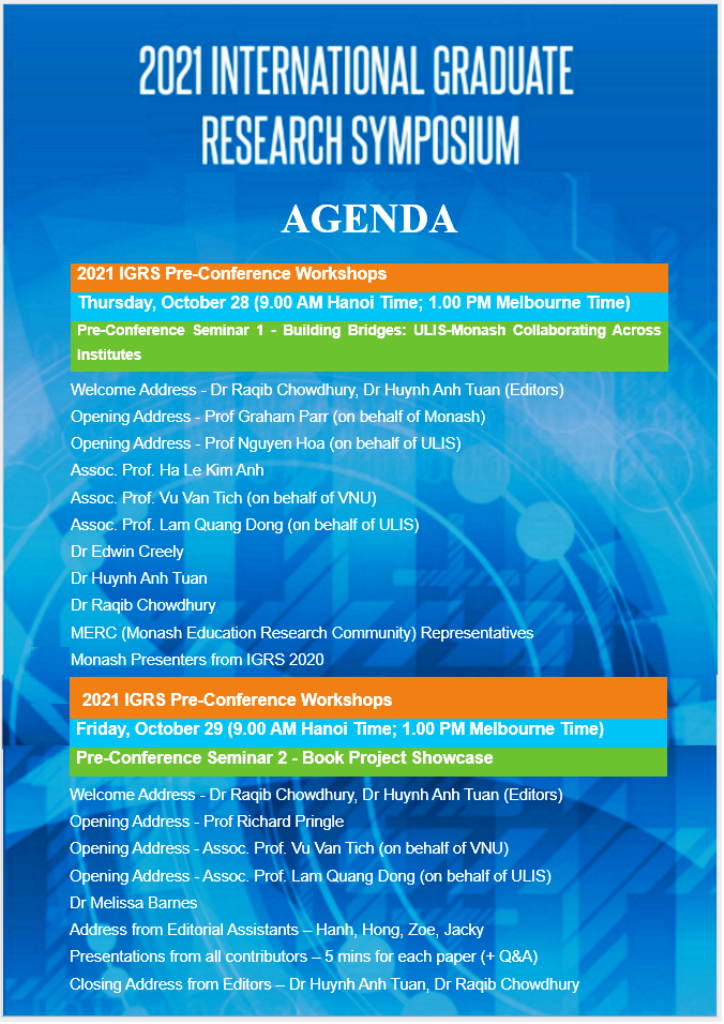
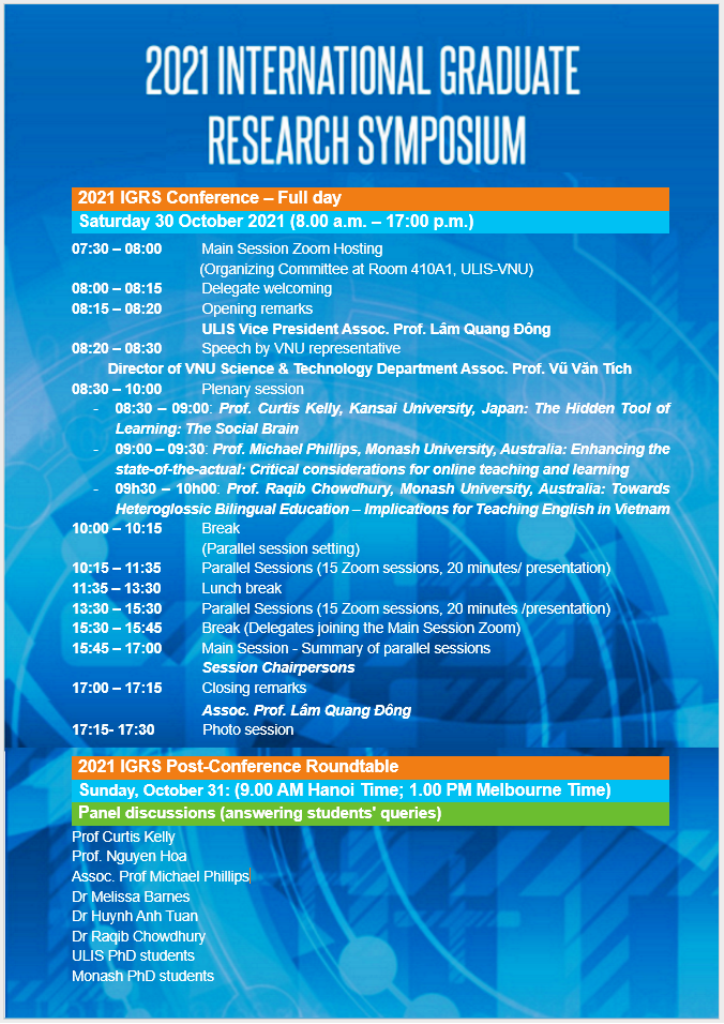
Kỷ yếu hội thảo:
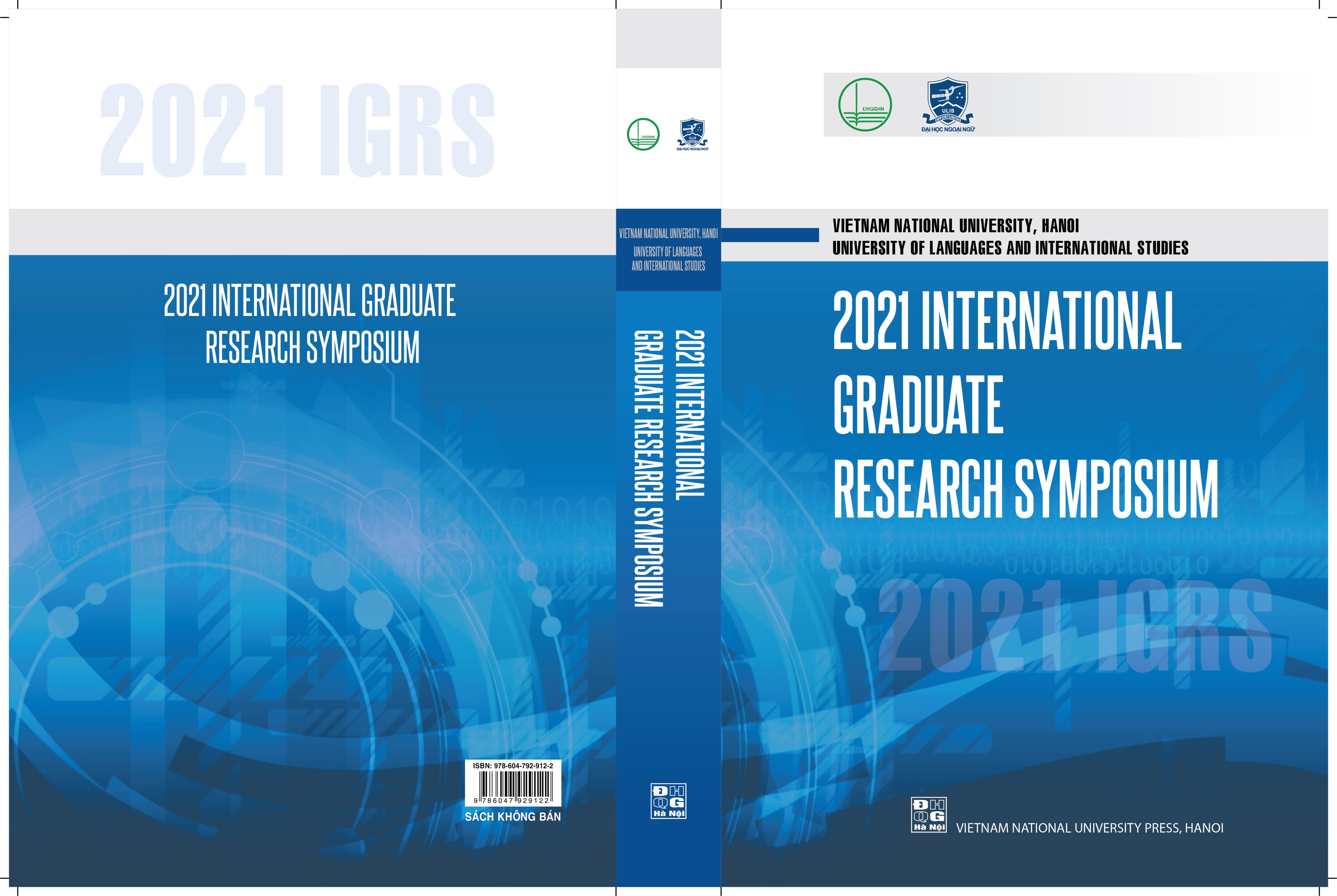
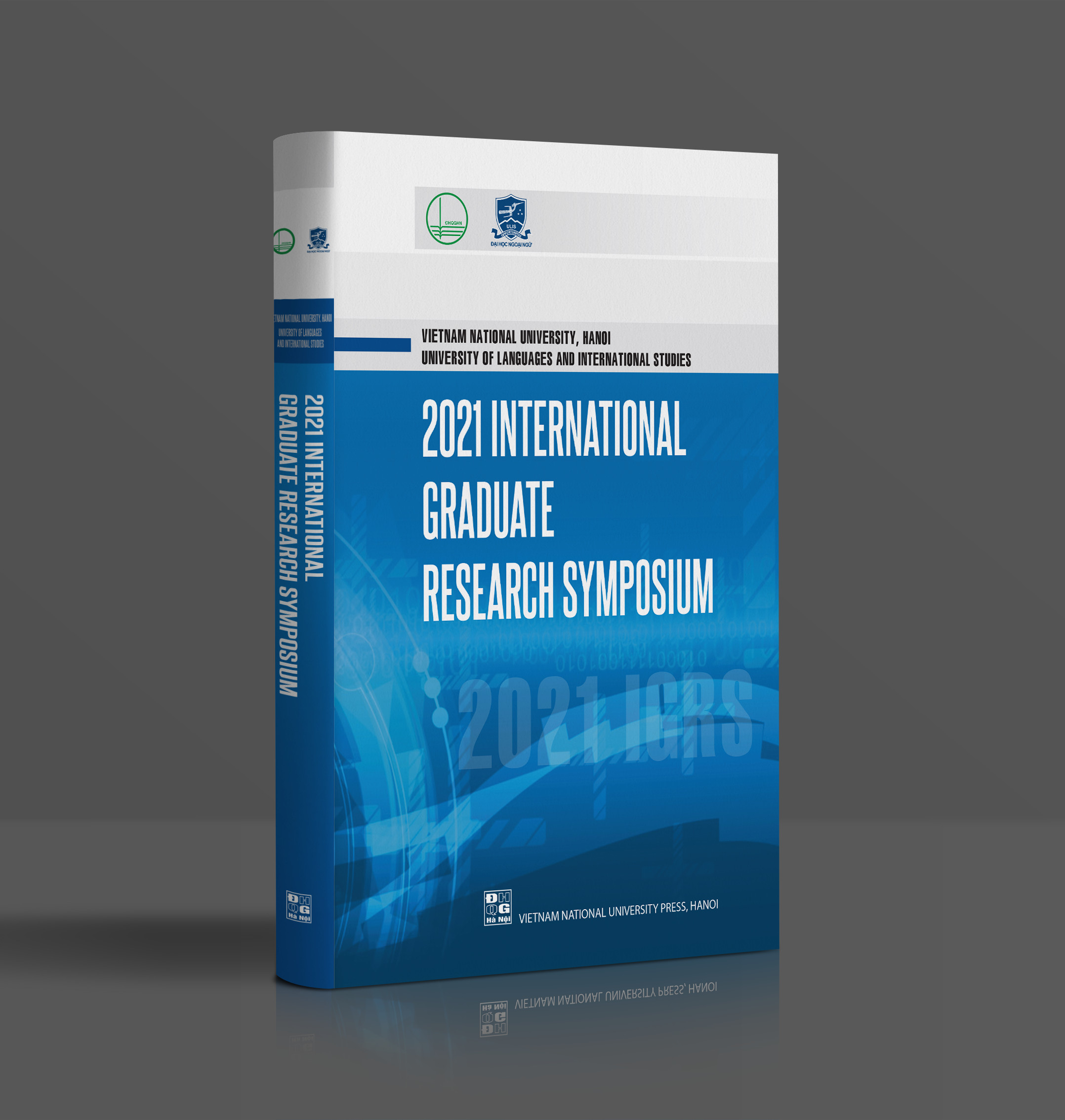
Các diễn giả chính:

|
Professor Curtis Kelly Kansai University, Faculty of Commerce, Professor Teacher, speaker and writer, Curtis Kelly (EdD), is a Professor of English at Kansai University in Japan. He has spent most of his life developing learner-centered methods and materials for English learners, especially those with low confidence, low ability and low motivation. He believes learners should be pulled into English study rather than pushed. He has made over 330 presentations and written 29 books, including Active Skills for Communication (Cengage), Writing from Within (Cambridge), and Significant Scribbles (Longman). The Hidden Tool of Learning: The Social Brain Curtis Kelly Kansai University Abstract: Through FMRI research, Matthew Lieberman discovered a large network in our brain devoted to figuring out other people’s thoughts and intentions: the mentalizing network. The social brain is also important for learning and is active anytime the working memory network, which we use for analytical thinking, is not. Lieberman calls it our Superpower, but he also defines our Kryptonite: traditional education. Educators tend to see the social aspect of learning as a frivolity, or ignore it altogether. For designing rich online classes, synchronous or not, the social brain has much to teach us, including why we experience “Zoom fatigue.” |
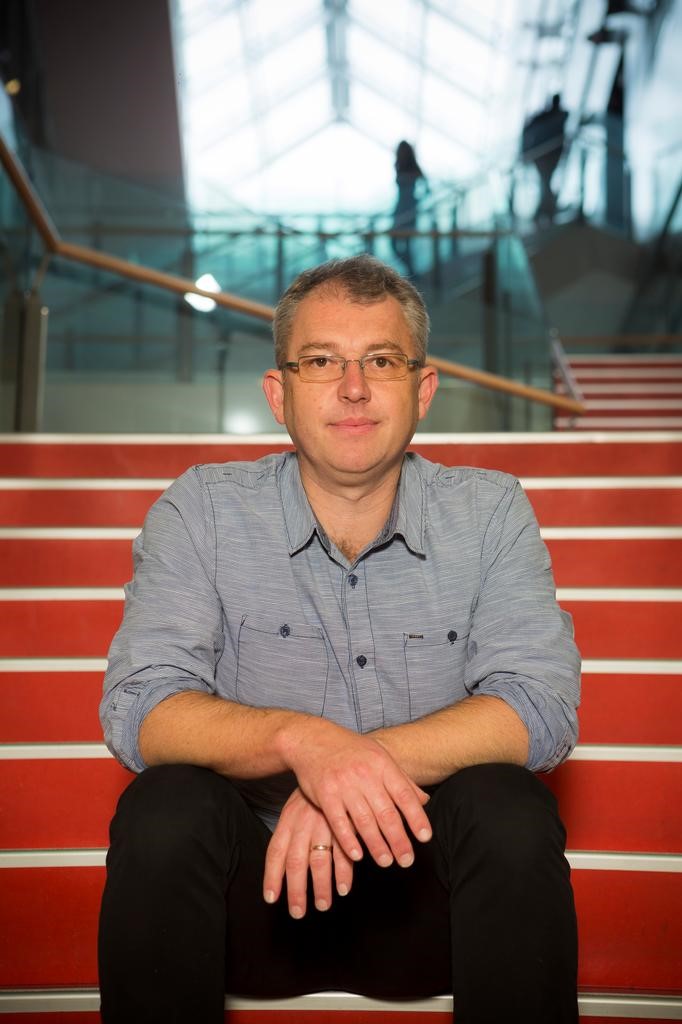
|
Assoc Professor. Michael Phillips Mike Phillips is the Associate Professor of Digital Transformation in the Faculty of Education, Monash University. His work focuses on the knowledge expert teachers develop when integrating educational technologies into their practice. Additionally, Mike researchers the ways in which expert teachers make active decisions about their classroom technology integration. Mike’s research regularly involves collaboration with colleagues from Australia, the United States, Europe, Asia and the sub-continent. In 2019, Mike lead an international team from 11 countries exploring teacher decision making in technology rich contexts as part of the UNESCO EDUsummIT. These projects have resulted in a range of books, book chapters, peer reviewed journal articles and conference presentations including a Highly Commended Paper Award from the Australian Council for Computers in Education (ACCE) and the Best Paper Award at the Society for Information Technology and Teacher Education (SITE) conference in 2016 and again in 2019. Mike has also received the Dean’s Award for Excellence in Teaching and Learning (2015), the Vice-Chancellor’s Award for Programs that Enhance Learning (2016), the Monash Postgraduate Association Lecturer of the Year Award (2016) and the Dean’s Award for Outstanding Research by an Early Career Researcher (2017). Prior to joining Monash University in 2013 Michael was a senior teacher for 15 years in secondary schools. He is also an Associate Editor for the Australasian Journal of Technology in Education and his work enhancing the professional learning of ICT teachers in Victoria was recognised in December 2013 with an Outstanding Professional Service Award from the Council of Professional Teaching Associations of Victoria. Enhancing the state-of-the-actual: Critical considerations for online teaching and learning Associate Professor Mike Phillips School of Curriculum, Teaching and Inclusive Education Faculty of Education, Monash University Educational technology has been considered an entrepreneurial, forward-focussed and ever-changing field. Efforts over the past four decades have explored the pedagogical affordances and learning potentials of a cornucopia of ‘new technologies’. Ongoing debates about the opportunities and limitations of the ‘fit’ of such technologies into teachers’ practices and students’ learning and the desperate desire of some to ‘prove’ technology use leads to ‘effective’ learning outcomes have seen many educational technologists focussing on ‘state-of-the-art’ issues. The rapid global shift to online and virtual learning resulting from the global COVID-19 pandemic has arguably resulted in explorations not focussed so much on the ‘state-of-the-art’ issues which have dominated previous discourse but, instead, the focus has shifted to the ‘state-of-the-actual’ – what is actually going on when teachers and students are required to conduct all their educational practices on line. This paper builds on Selwyn’s (2008) prediction that state-of-the-actual issues which arise when technologies meet classrooms are arguably more critical to understand how, when and why certain technologies may (and may not) be used to produce effective learning in an age of great uncertainty. Drawing on experiences of educators and students in a range of geographical and social contexts, this paper will propose a framework through which the state-of-the-actual in online education in an uncertain world can be better understood. |
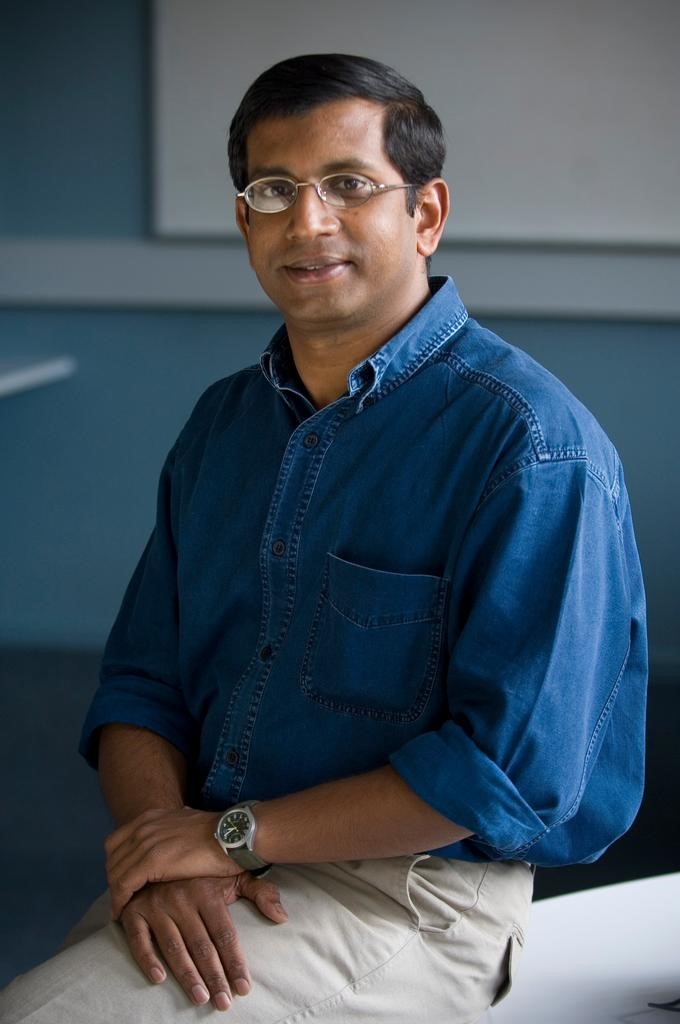
|
Dr Raqib Chowdhury Dr Raqib Chowdhury taught English literature at the University of Dhaka (Bangladesh) from 1997 to 2004 as Lecturer and Assistant Professor, and then joined the Monash Faculty of Education upon completing his PhD here in 2008. He holds a Bachelor’s degree in English, a Master’s degree in English Literature and a Master’s degree in Education (TESOL). In his doctoral thesis he investigated how vested interest groups – such as universities and governments – construct and understand the term ‘international’ to establish the so-called ‘needs’ of international students in Australia and how such understanding is promoted for largely implicit commercial and hegemonic reasons. He is author of Desiring TESOL and International Education: Market Abuse and Exploitation (Multilingual Matters, 2014) and has published widely in the areas of TESOL and ELT, culture and pedagogy, English teacher education, international education, social justice and identity. Raqib has been invited as Keynote Speaker and Visiting Scholar at several international conferences and universities and he delivers seminars and workshops overseas for graduate research students on a regular basis. His recent edited books are Engaging in Educational Research: Revisiting Policy and Practice in Bangladesh (Springer, 2018), Equity, Identity and Social Justice in Asia Pacific Education (Monash University Publishing, 2019), and Transformation and Empowerment through Education: Reconstructing Teaching and Learning (Routledge, 2019). His latest book is The Privatisation of Higher Education in Postcolonial Bangladesh: The Politics of Intervention and Control (Routledge, 2021). Raqib received two Monash University Vice-Chancellor’s Social Inclusion Awards in 2010 (Winner) and 2011 (Commendation), as well as the Dean’s Award for Programs That Enhance Learning in 2012. In 2003 he won the Dean’s Award for Outstanding Research Publication in the Faculty of Arts, Dhaka University, where he was teaching at the time. Raqib has supervised 10 PhD students to completion and is currently supervising 11. He is involved in a number of international collaborative projects involving Bangladesh, Indonesia, Vietnam and China on the themes of higher education reform, teacher training and professional development, and research capacity building. Towards Heteroglossic Bilingual Education – Raqib Chowdhury Abstract Thanks to advances in neuroscience and digital technologies, reductive monoglossic views of bilingualism and bilingual education have long given way to a more holistic understanding of the value of learning multiple languages. Yet, despite the obvious benefits of a heteroglossic approach to language education – which views a speaker’s linguistic repertoire as inseparable – in practice, monoglossic language ideologies continue to shape both foreign language teaching and language policy reforms in many countries, including in Vietnam. Language teachers – as much as policy makers – still often resort to a monolingual mindset that sidelines the value of dynamic bilingualism. Such discrepancy between predominantly monolingual institutional policies and practices, and the multilingual realities of our classrooms, especially in countries where English is the main foreign language, can have a profound effect on the learning of students. This presentation critically considers some of the latest research on the benefits of heteroglossic bilingual education, including the value of bilingual instruction, traslanguaging and own language use, multiple literacies, and how all of this can inform a more sensitive and respectful approach to teaching English as an International (rather than foreign) language. It presents the heteroglossic approach to bilingualism as an alternative that has the potential to facilitate ideological spaces from which aspiring and emergent bilinguals can speak from, while also upholding their linguistic and cultural identities. In particular, it discusses the practicalities of aiming to achieve the dual objectives of linguistic development and cognitive competence in content areas by adopting a language-across-the-curriculum orientation. |

